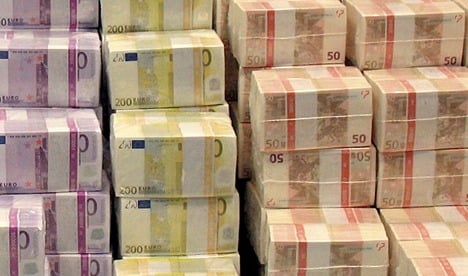The Family Business Foundation, one of the main lobby groups for the Mittelstand – the all-important small and medium-sized businesses – has sent a fiery letter to the 620 members of the Bundestag protesting against the government’s debt crisis policies.
About 100 firms with a total of about 200,000 workers and sales of about €38 billion have signed the letter. They demand that the Bundestag “put an end to Germany’s irresponsible debt policy.”
“The government, with its euro safety net policy, has embarked on a fatal path,” they wrote.
They called for far-reaching changes to the common currency agreement, in particular provisions for struggling peripheral nations to exit or be thrown out.
“Withdrawal and expulsion must be possible,” they wrote.
The letter comes as Greece prepares to vote this week on tough new austerity measures that are the conditions of its receiving the next installment of bailout money needed to keep the nation’s pubic finances afloat. The timing of the letter is likely no coincidence and is meant to increase pressure on the German government at a sensitive time.
Merkel and other European leaders are desperate to avoid a messy Greek default on its debt and, further, to avoid any break-up of the eurozone.
The family firms’ chief complaint is that politicians have not stuck to the eurozone’s founding principles: that governments must not break a specific debt ceiling and that no country is responsible for the debt of others, as per the famous “no-bailout clause.”
“They have in the past year broken that basic principle that no country has responsibility for the debt of other euro countries. And with this policy they have contributed to the European Central Bank’s losing its independence.”
The risks to Germany’s own budget were “incalculable,” they added, calling for the Bundestag to act.
The Local/djw




 Please whitelist us to continue reading.
Please whitelist us to continue reading.
Member comments